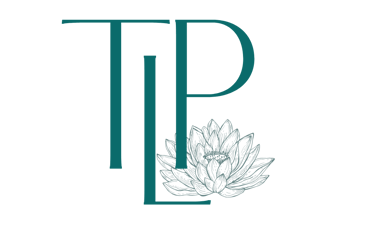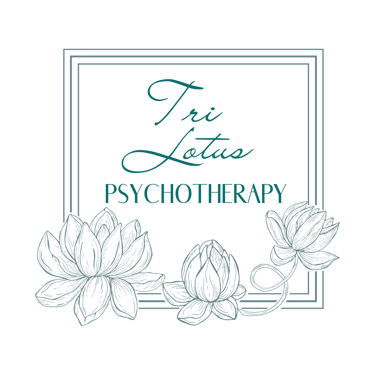NOW ACCEPTING NEW CLIENTS: In-Person in Calgary & Online across Alberta Book a Free 20min Introductory Call! CLIENT LOGIN
Understanding Anxiety, Panic Attacks, and Anxiety Attacks: Definitions, Differences, and Coping Strategies
This blog post creates awareness of the differences between anxiety, panic attacks, and anxiety attacks by diving into what they are and their symptoms. It then explores how Acceptance and Commitment Therapy and Eye Movement Desensitization and Reprocessing can be effective therapeutic approaches in the treatment of anxiety and panic attacks to help you live a life aligned with your values.
ABOUT THERAPYANXIETY RELIEF
Kaylee Procter
6/25/20245 min read


This blog post creates awareness of the differences between anxiety, panic attacks, and anxiety attacks by diving into what they are and their symptoms. It then explores how Acceptance and Commitment Therapy and Eye Movement Desensitization and Reprocessing can be effective therapeutic approaches in the treatment of anxiety and panic attacks to help you live a life aligned with your values.
Defining Anxiety
Anxiety is a feeling of worry, nervousness, or fear about something that might happen in the future. It's like having a constant sense of unease or dread, even when there might not be an immediate threat or reason to feel this way. Everyone feels anxious sometimes, but when this feeling becomes overwhelming or happens too often, it can interfere with daily life and well-being.
Clinically, anxiety can be generalized or situational. In cases of Generalized Anxiety Disorder (GAD) the individual experiences chronic, exaggerated worry and tension, even when there is little or nothing to provoke it. On the other hand, situational anxiety occurs in response to a specific event or situation, such as public speaking or flying. Situational anxiety may or may not become phobias.
What is a Panic Attack versus an Anxiety Attack?
Panic attacks are distinct from generalized anxiety in their sudden and acute nature. They are episodes of intense fear that trigger severe physical reactions. Symptoms of a panic attack can include:
Heart palpitations or an excessively fast heart rate
Sweating
Dizziness
Shortness of Breath
Shaking/Trembling
Feeling of impending doom
Chest Pain
Nausea
Tightness in your throat
Fear of dying or losing control
These attacks occur without any real danger or apparent cause, like a false alarm, making them particularly distressing. Panic attacks typically feel very overwhelming and may last for several minutes. They are often very distressing for people, as they can mimic symptoms of a heart attack.
Anxiety attacks, while similar to panic attacks, differ primarily in their onset, duration, and symptomatology. Anxiety attacks are generally triggered by a specific stressor and build up gradually, rather than striking suddenly. Symptoms of an Anxiety Attack can include:
Worry
Restlessness
Muscle tension
Difficulty concentrating
Faster breathing
Headaches
Nausea
In contrast to panic attacks, anxiety attacks are less intense, but longer lasting. They can persist for hours or even days. Understanding these distinctions is crucial for identifying the appropriate coping strategies and treatments. Awareness of the differences between generalized anxiety, panic attacks, and anxiety attacks allows individuals to seek targeted help and manage their symptoms more effectively.
Treating Anxiety, Panic Attacks, and Anxiety Attacks
Managing anxiety, panic attacks, and anxiety attacks requires a multifaceted approach. Evidence-based techniques such as mindfulness, deep breathing exercises, Acceptance and Commitment Therapy strategies, and Eye Movement Desensitization and Reprocessing (EMDR) have proven to be effective. Mindfulness involves being fully present in the moment, which can help disrupt the automatic response of anxiety. If anxiety lives in the future, then it cannot be in the present moment. Deep breathing exercises, on the other hand, can activate the body's relaxation response, reducing the intensity of panic attacks.
Lifestyle changes also play a crucial role in managing anxiety. Regular exercise, for instance, has been shown to release endorphins, which act as natural mood lifters. Reducing caffeine and alcohol intake can also mitigate anxiety symptoms, as these substances can increase stress and panic attacks.
If you are experiencing anxiety on a regular basis, it is important to seek treatment for anxiety, as it can turn to panic attacks. Chronic anxiety keeps the body in a state of heightened arousal, with elevated levels of stress hormones like adrenaline. This heightened state makes the body more sensitive to triggers and more likely to respond with a panic attack.
How can Acceptance and Commitment Therapy Help Treat Anxiety?
While self-help strategies are valuable, seeking professional help is often necessary for a comprehensive treatment plan. Calgary Psychologists can provide personalized support and specialized techniques tailored to an individual's specific needs.
Acceptance and Commitment therapy (ACT) is particularly effective for anxiety disorders, as its premise is to accept the things that you cannot control and commit to a life that is aligned with your values. When anxiety is present it feels uncomfortable. The natural human urge is to want to avoid situations that will trigger discomfort. The problem with this tactic is, the more we avoid situations or people that trigger feelings of anxiety, the bigger our anxious feelings get, as we are not proving to ourselves that we can handle it. This cycle can result in living a life outside of how you want to be living, which research shows creates more distress.
Acceptance and Commitment Therapy helps with anxiety because it teaches skills to change your relationship with your emotions so that they stop controlling your behaviour; detach from anxious thoughts; and explore and commit to actions that align with your values. After application of these skills, in time, you will be able to live a life that represents how you want to show up, rather than one that is dictated by your anxious feelings.
How can EMDR Help with Anxiety and Panic Attacks?
EMDR is a therapeutic approach that helps treat anxiety and panic attacks, especially anxiety related to trauma, by processing and resolving distressing memories and beliefs. It treats the root of the anxiety and panic attacks. Here's how EMDR helps:
Processing Traumatic Memories: EMDR helps individuals process traumatic memories that contribute to anxiety. During an EMDR session, the therapist guides the patient through recalling traumatic experiences while simultaneously engaging in bilateral stimulation, typically through side-to-side eye movements and/or tapping. This process helps reprocess the traumatic memory, reducing its emotional charge.
Desensitization: By repeatedly focusing on the traumatic memory while undergoing bilateral stimulation, the distress associated with the memory decreases. The memory becomes less triggering, leading to a reduction in anxiety and panic attack symptoms.
Cognitive Restructuring: EMDR helps in restructuring negative beliefs associated with traumatic experiences. As the emotional intensity of the memory decreases, individuals can adopt more adaptive and positive beliefs about themselves and their experiences, reducing anxiety.
Integration: The reprocessing of traumatic memories allows for better integration of these experiences into the individual’s broader life narrative. Instead of being a source of ongoing distress, the memory becomes a part of the past that no longer has a strong emotional impact, leading to reduced anxiety and less likelihood of experiencing a panic attack.
Improving Coping Mechanisms: EMDR can help individuals develop healthier coping mechanisms. By resolving the underlying trauma, individuals often experience improved emotional regulation and a reduction in anxiety-provoking thoughts and behaviours.
Addressing Triggers: EMDR helps identify and desensitize specific triggers that cause anxiety and panic attacks. By targeting these triggers during therapy, individuals can reduce their sensitivity to these triggers in their daily lives, leading to less frequent and intense anxiety responses.
Holistic Approach: EMDR treats anxiety in a holistic manner, addressing both the psychological and physiological components of anxiety and subsequent panic attacks. The bilateral stimulation used in EMDR is thought to help engage both hemispheres of the brain, facilitating the processing of traumatic memories in a more balanced and comprehensive way.
In summary, EMDR helps treat anxiety and panic attacks by reprocessing traumatic memories, reducing their emotional intensity, and reshaping negative beliefs. This process leads to a decrease in anxiety symptoms, panic attacks, and an overall improvement in emotional well-being.
Conclusion
Anxiety is a feeling that a lot of us struggle with. It can be helpful in that it protects us from danger, but unhelpful when it starts to negatively impact our life. It becomes extremely unhelpful when it results in anxiety or panic attacks. The good news is, there is treatment available to help!
Tri Lotus Psychotherapy is a Calgary counselling clinic offering specialized services in anxiety support and panic attack treatment. With a client-centered approach, Tri Lotus Psychotherapy ensures that each treatment plan is customized to meet the unique needs of the individual. They offer a range of therapeutic modalities, including ACT, Emotion Focused Therapy, Compassion-Focused Therapy, and EMDR to help you live a life aligned with your values (i.e. how you want to be showing up).
For those interested in exploring professional support, Tri Lotus Psychotherapy provides a complimentary introductory call. This initial consultation allows potential clients to discuss their counselling needs, ask any questions you may have, and get a sense of whether you would connect with your psychologist before booking an appointment. To take the first step towards managing anxiety and improving mental well-being, book your complimentary call below.
Let's Connect
Please fill out the form to request an initial appointment
or complimentary introductory call
Contact
hello@trilotustherapy.com
Clinic Hours
Monday: 5:00pm to 8:00pm
Tuesday: 1:00pm to 8:00pm
Wednesday: 8:00am to 8:00pm
Thursday: 8:00am to 8:00pm
Friday: 11:30am to 4:30pm
Saturday: 9:00am to 3:00pm
Copyright © 2025 by Tri Lotus Psychotherapy - All Rights Reserved


Land Acknowledgment: I gratefully acknowledge and honour that where I live, work and play is within the traditional territories of the people of the Treaty 7 region in Southern Alberta, which includes the Blackfoot Confederacy (comprising the Siksika, Piikani, and Kainai First Nations) as well as the Tsuut’ina First Nation, and the Stoney Nakoda (including the Chiniki, Bearspaw, and Wesley First Nations); and Métis Nation of Alberta, Region 3. The traditional Blackfoot name of this place is “Mohkinstsis”, which is also known now as Calgary.

